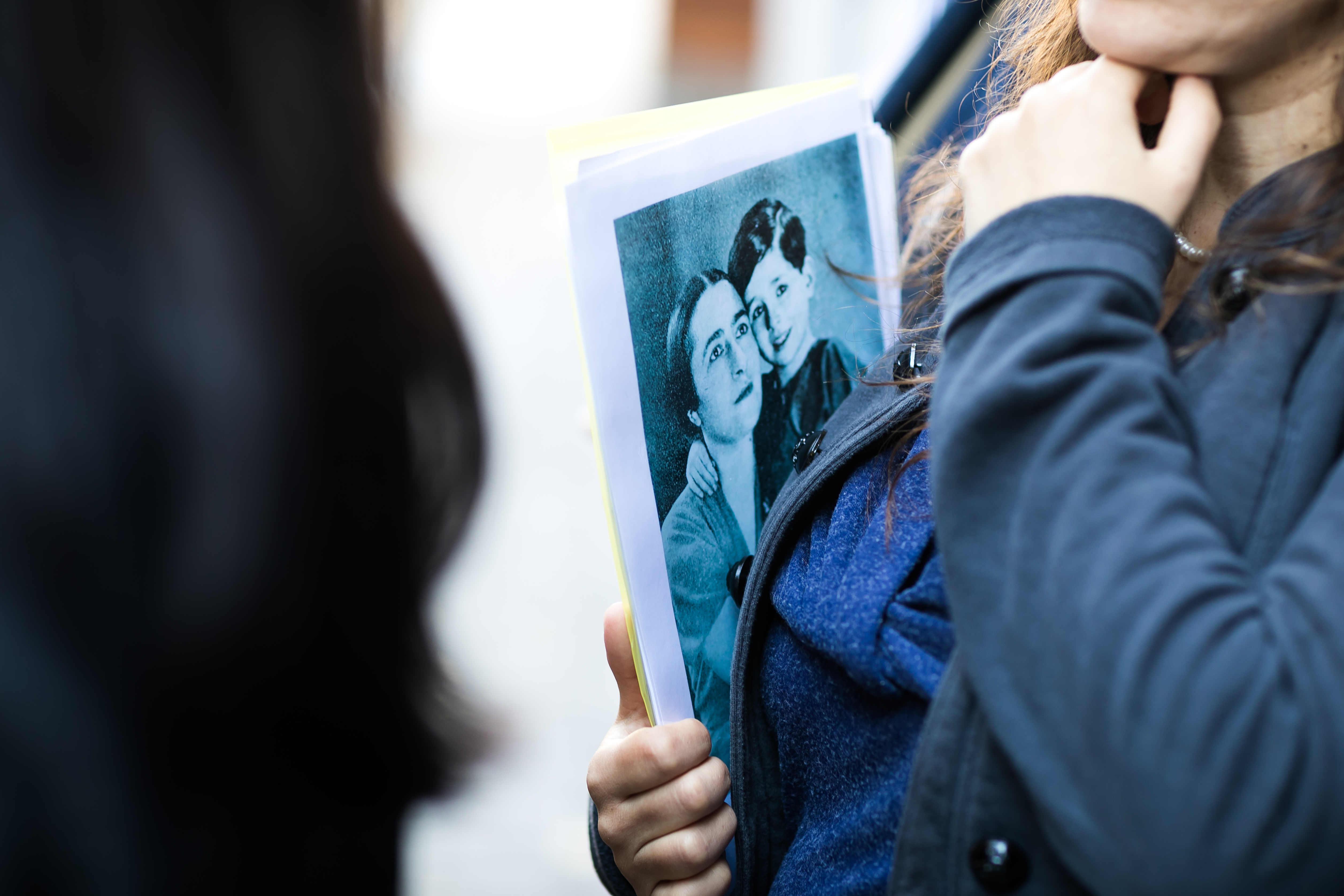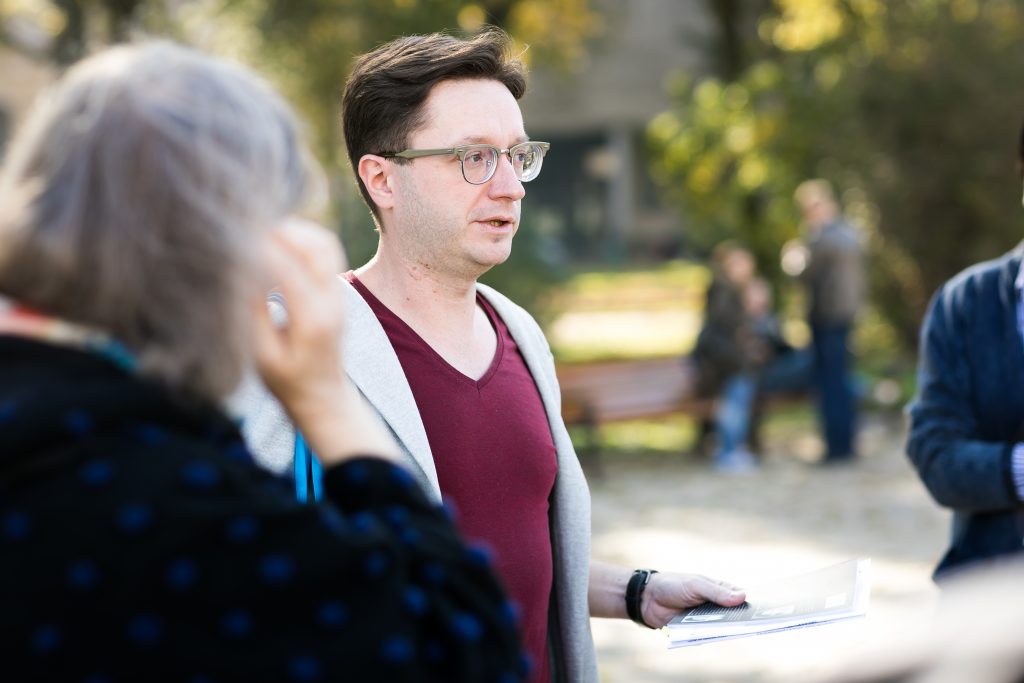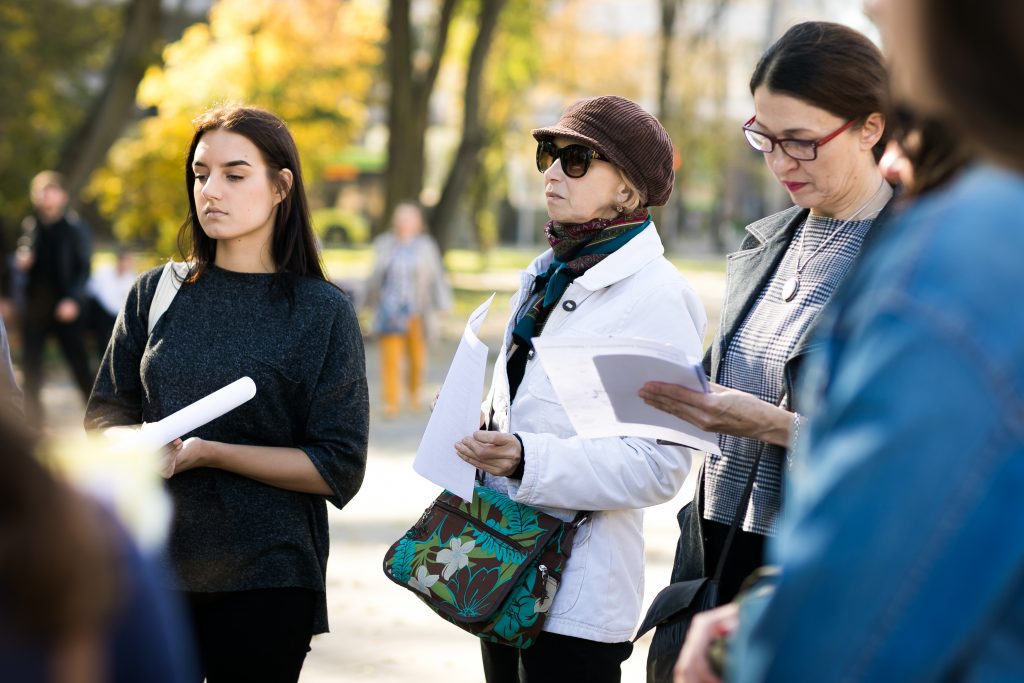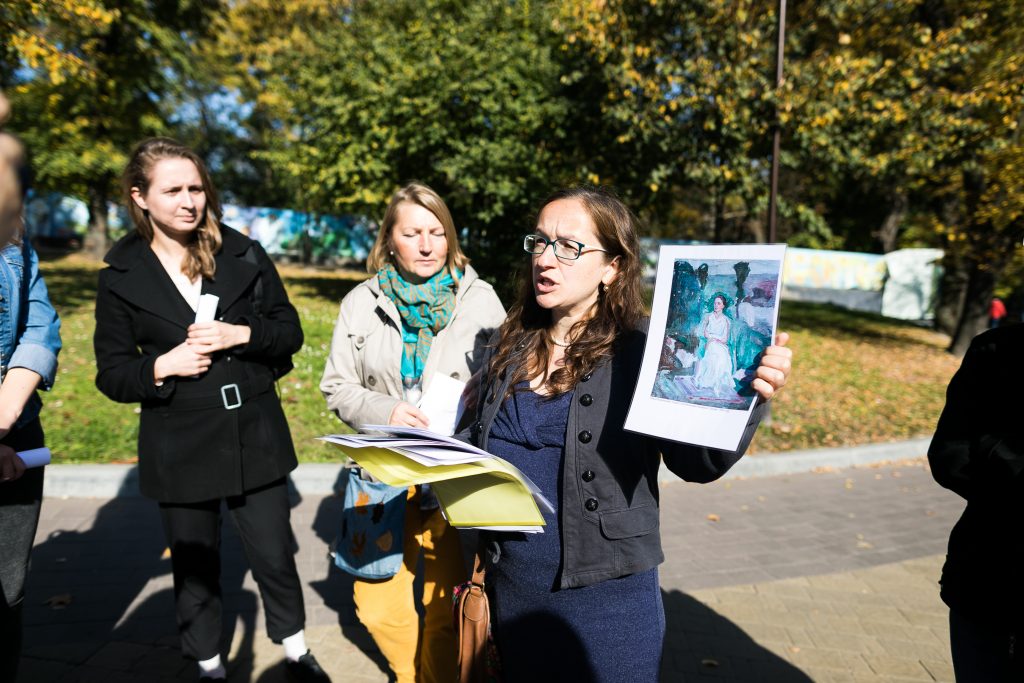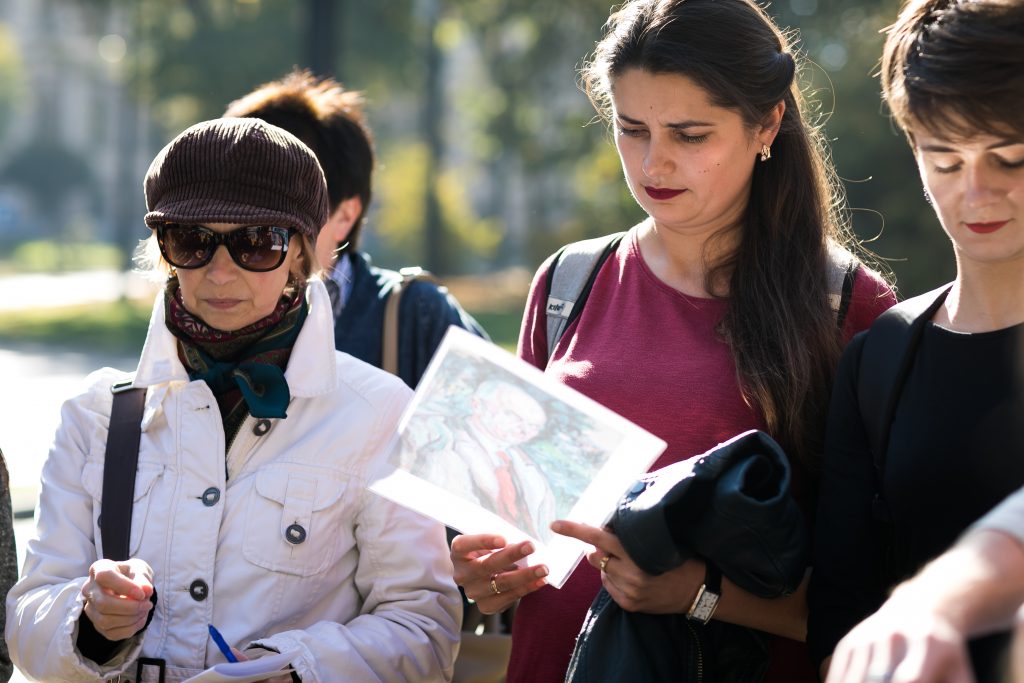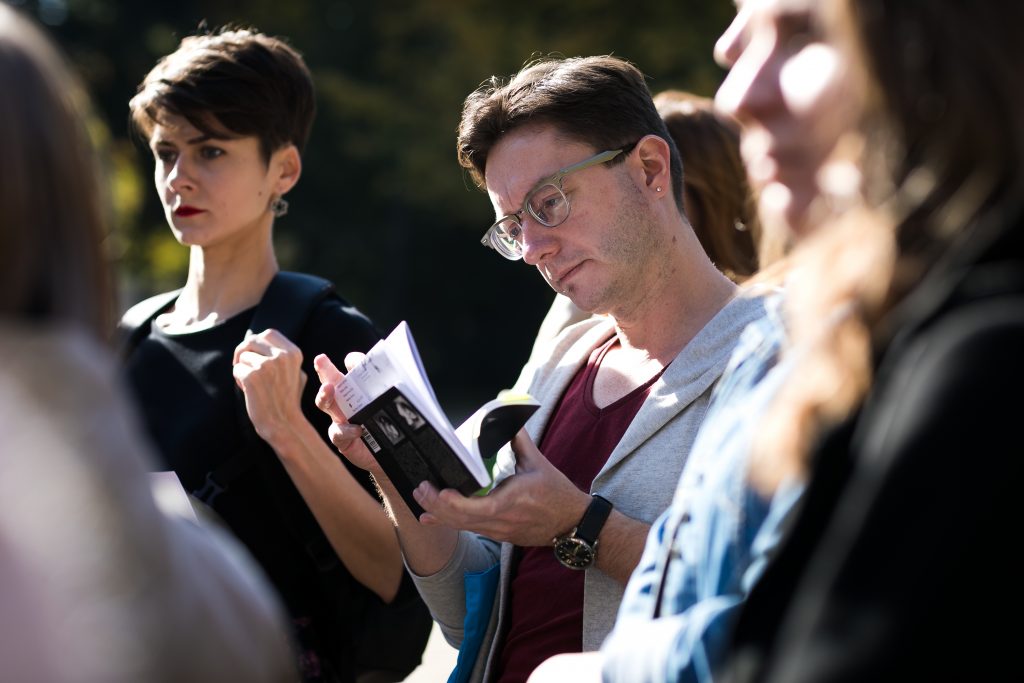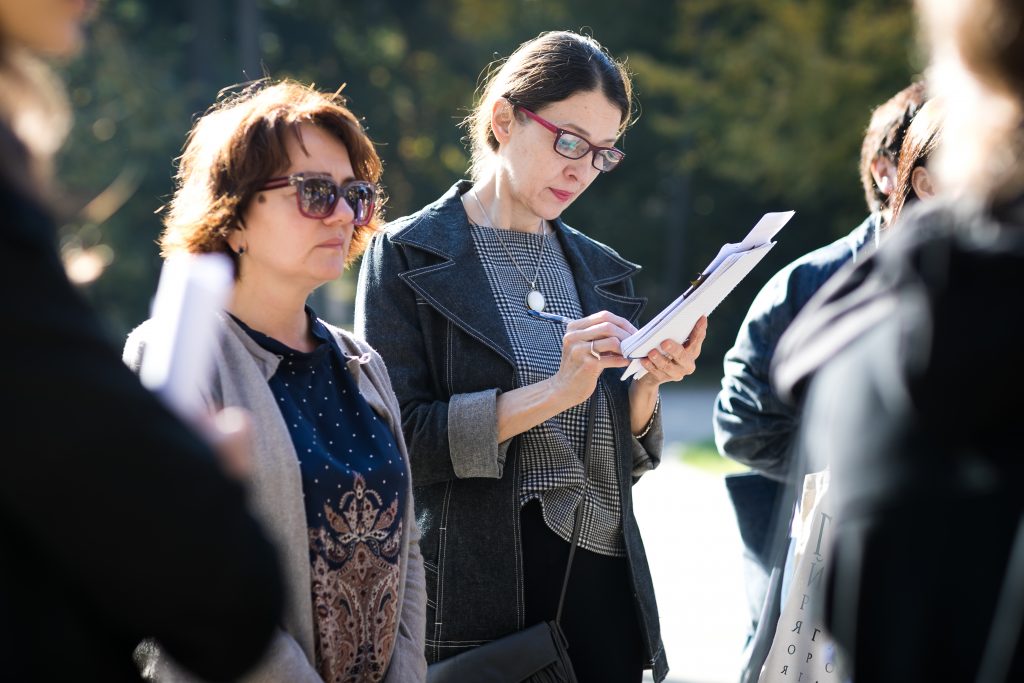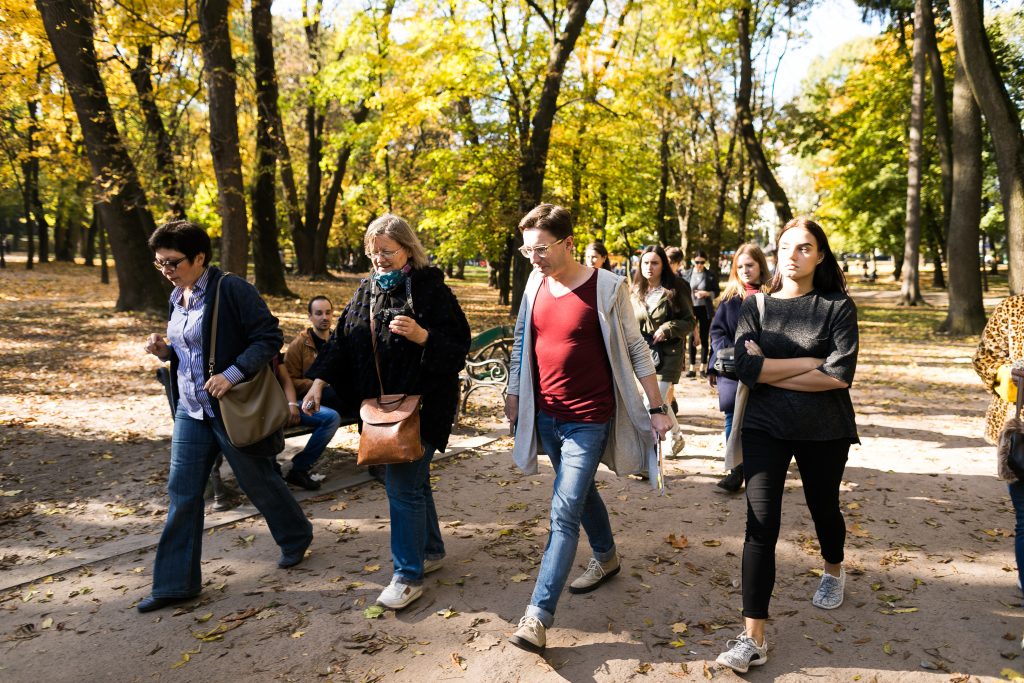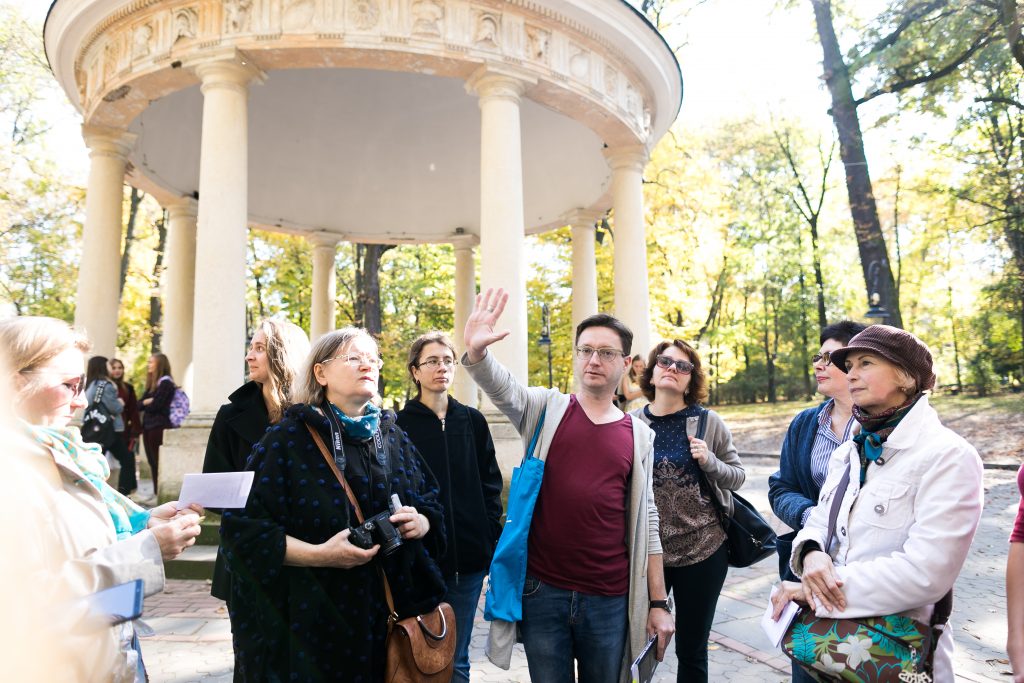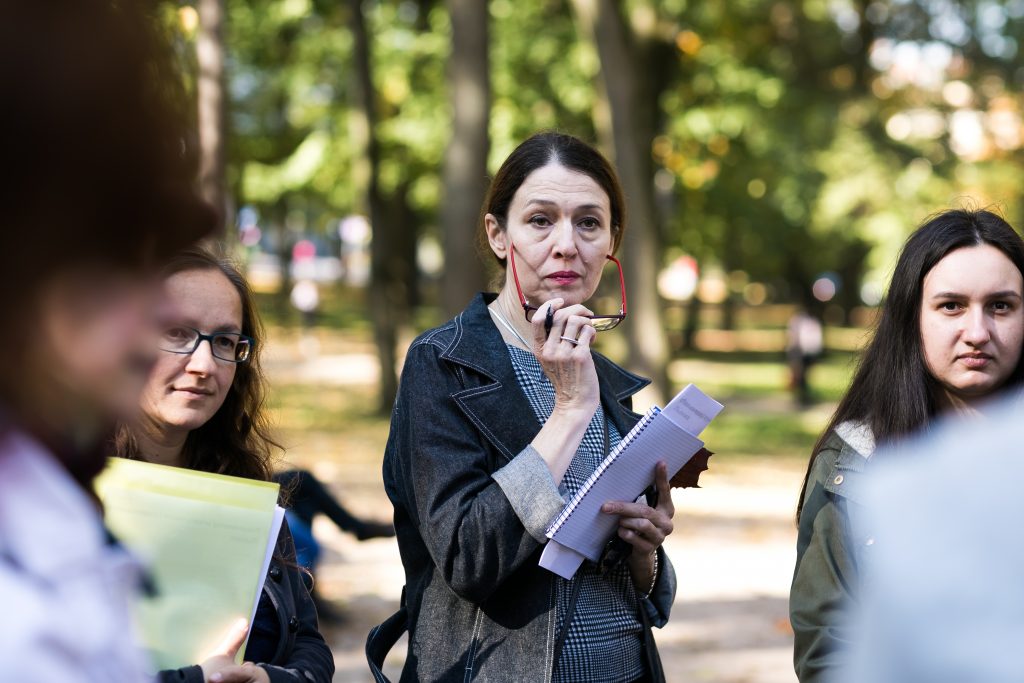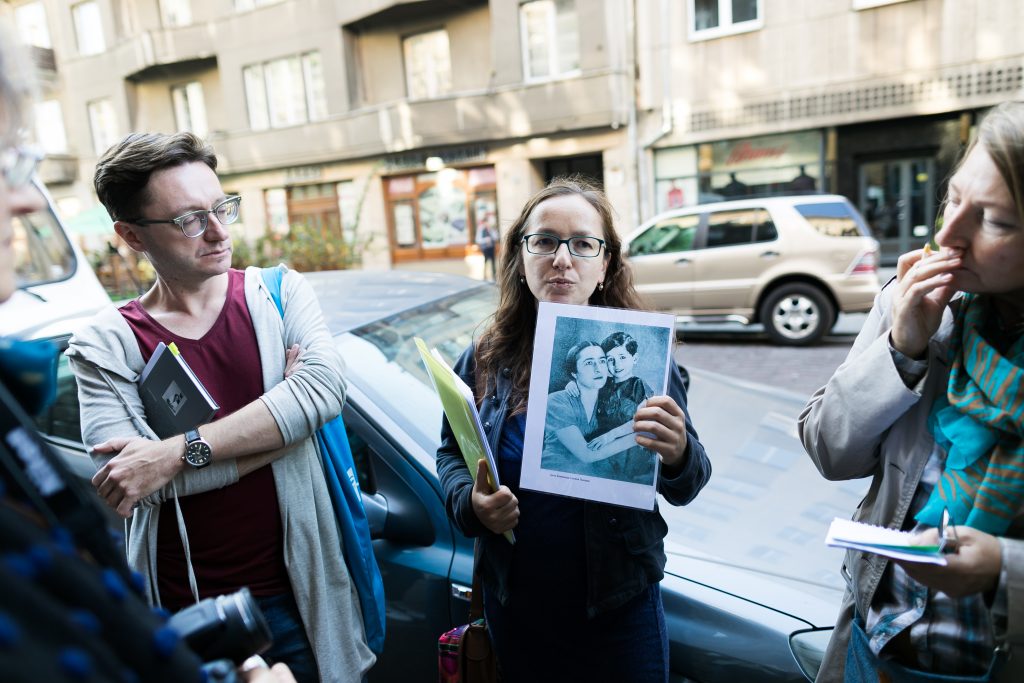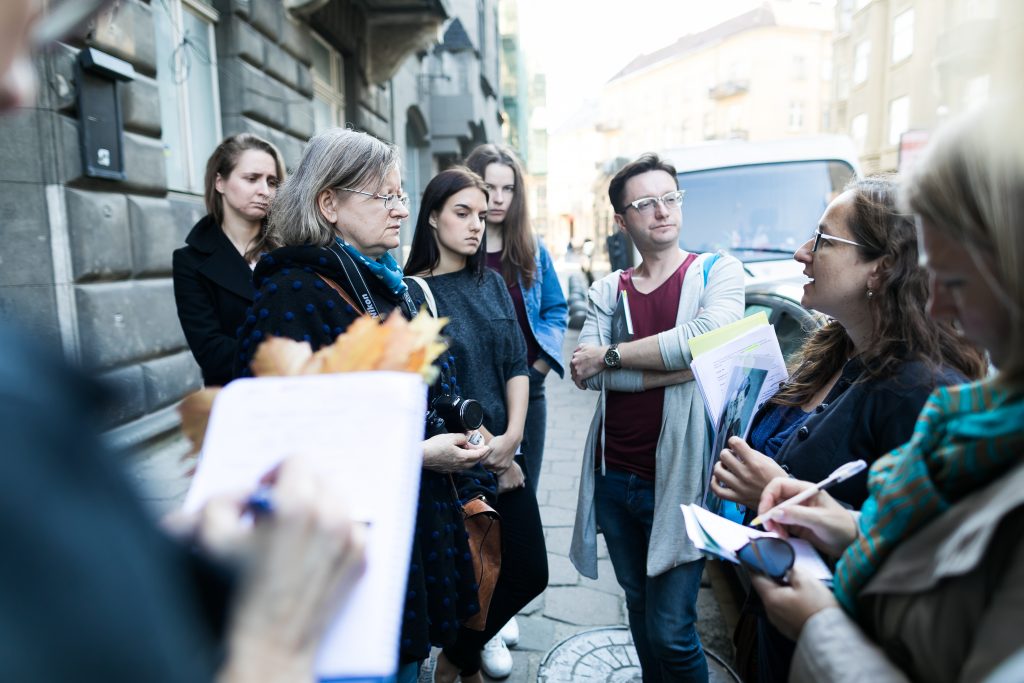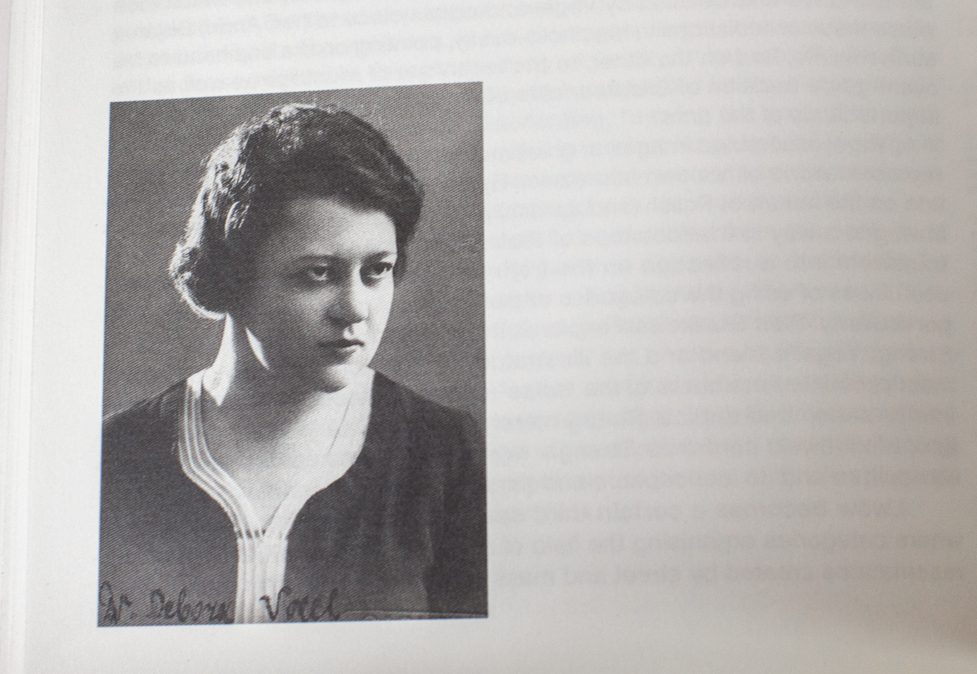Literary Lviv of the interwar and Soviet periods
December 8, 2018 / 12 am
Women walk along with the incredibly thin waists.
They seem to be carved from the fashion magazine,
they can’t be coming into life beyond those colored magazines.
Debora Vogel, Soir de Paris
City walks were the part of a public program to support the exhibition "Zuzanna Ginczanka. Only Happiness is Real Life." The exhibition is an attempt to visualize a personality and creative legacy of a Polish poetess of Jewish origin (1917-1943/44), while the walks will help you learn the story of the literary milieu through the urban space.
In the interwar and postwar periods, the same as today, women had to persistently struggle for their place on the cultural scene where men were ruling and directing the story. Women were treated as reflection of men’s stereotypes and urges. At the same time, it presented an additional temptation to women to have the career ‘bonus’, provided a woman agreed to assume that role. For many women, an additional barrier was also in their origin: the interwar Poland and the USSR (not to mention the Nazi Germany) were the states not much tolerating the minorities.
The stories of Lviv women writers to be mentioned during the walk are alike and different in many respects. Zuzanna Ginczanka, Iryna Willde, Rachel Auerbach, Milena Rudnycka, Katria Hrynevycheva, Anna Kowalska, Halina Gurska, Maria Strutynska, Debora Vogel, Olha Duchyminska, and Daria Vikonska had different ethnic origin (Polish, Ukrainian, Jewish), and were writing in different languages. Even though they were walking the same streets their paths hardly ever crossed, due to a relative isolation of multinational cultural milieus in the city. However, for each of them, Lviv was an important topos – even though some of them had lived all of their lives in the city, while others only had their short but bright episodes therein.
There is another point that became a common dramatic experience for all of the writers. It was the Second World War. Some of them did not survive, but even the survivors had never come back to Lviv. The group of the characters of the city walk only has two such women writers – Iryna Wilde and Olha Duchyminska. They, too, found themselves on different sides of the Soviet repression machine…
City walks will be guided by the tandem of Iryna Frys and Ostap Slyvynskyi.
Ostap Slyvynskyi
is a poet and translator, a literary scholar, a critic, and essayist. Author of the book “Winter King”.
Iryna Frys
is a literary scholar, translator, a Polish Studies scholar (Polish philology).
Three city walks were conducted during the October, 2018, and the last one on December 8, 2018.
Free attendance.
Organizers
• Center for Urban History of East Central Europe, Lviv
• Adam Mickiewicz Museum of Literature in Warsaw
• Polish Modern Art Foundation, Warsaw
Under the patronage of Consulate General of the Republic of Poland to Lviv
Partners
• Franko House, Lviv
• Department of Polish Philology of Ivan Franko National University, Lviv
• Adam Mickiewicz Institute, Warsaw
• The Society of Authors ZAiKS, Warsaw
Credits
Сover Image, Image Gallery by Iryna Sereda
